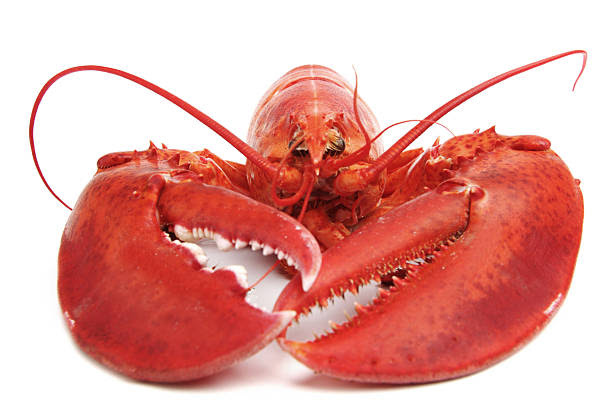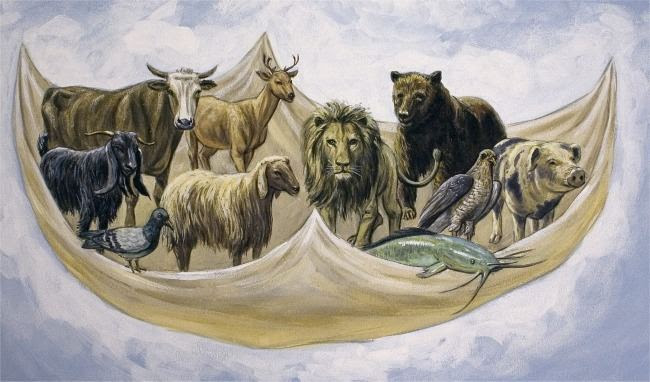Acts 10: 9 – 23
The Kashrut Laws of Judaism dictate what may and may not be eaten and are enumerated in Leviticus 11 and Deuteronomy 14. Camels, rock badgers, rabbits, pigs, any sea-creature without fins and scales, storks, water hens, ostrich, many other birds, and all winged insects are specifically outlawed.
- Certain animals may not be eaten at all. This restriction includes the flesh, organs, eggs and milk of forbidden animals.
- Of the animals that may be eaten, birds and mammals must be killed in accordance with Jewish law.
- All blood must be drained from meat and poultry or broiled out before it is eaten.
- Certain parts of permitted animals may not be eaten.
- Fruits and vegetables are permitted, but must be inspected for bugs (which cannot be eaten)
- Meat (the flesh of birds and mammals) cannot be eaten with dairy. Fish, eggs, fruits, vegetables and grains can be eaten with either meat or dairy. (According to some views, fish may not be eaten with meat).
- Utensils (including pots and pans and other cooking surfaces) that have come into contact with meat may not be used with dairy, and vice versa. Utensils that have come into contact with non-kosher food may not be used with kosher food. This applies only where the contact occurred while the food was hot.
- Grape products made by non-Jews may not be eaten.

| Just as God has been at work with Cornelius in ways Cornelius does not yet understand, so God has been working to prepare Peter for his future encounter with Cornelius. During noonday prayer up on the rooftop Peter sees something like a large sheet coming down from heaven full of creatures forbidden by Kashrut Law, accompanied by a voice saying: “Get up, Peter; kill and eat.” Peter declines God’s directive. Just when we think we’ve got life all tidied up, everything stowed in the correct box and bedecked with a proper bow, the Almighty introduces a bit of disorder. We tell the Almighty that this or that matter is already settled, does not require his review or reconsideration, and that well-enough ought be left well-enough alone. “By no means, Lord; for I have never eaten anything that is profane or unclean.” God is patient and repeats the vision three times there on Peter’s rooftop. Third time’s a charm. Peter, we learn, is puzzled. Surely Leviticus and Deuteronomy have settled dietary matters. Why would God contradict previous directives? Think of the meat packing industry if kosher butchers are thrown out of work! Radical notions like this…that all foodstuffs are created equal…meddles dangerously with established economic models. This passage introduces the notion that God may be preparing you for encounters you presently know nothing about, and that your prep-school homework may include revisiting cherished personal sacred cows, settled opinions, and fixed views on the world. If we have everything all wrapped up, concluded and determined, there won’t be much room for God to do a new thing in our lives, or to make us useful for those beyond the site-line of the blinkers we do not wish to admit to wearing. Grace and peace, The Reverend Canon George F. Woodward III Rector For fans of the 80s alternative band ‘the B-52s’ HERE “Do not ask About the outcome of my days, or of yours, Leuconoe— it’s a secret, beyond us. And don’t attempt abstruse calculations.” Odes 1.11 by Horace Previous Reflections may be found on the parish website StPaulSMA.com under ‘Blogs’ here. YouTube postings are available here. Previous editions of THE EPISTLE can be found here. |

| St. Paul’s Anglican Church Calzada del Cardo, 6 Centro 37700, San Miguel de Allende, Mexico 415.121.3424 www.StPaulSMA.com |

